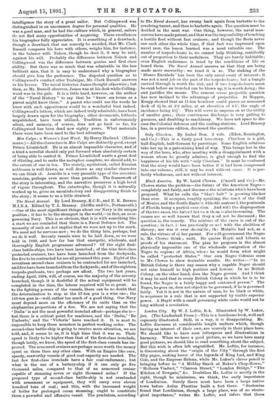Black America. By W. Laird Clowes. (Cassell and Co.)—Mr. Clowes
states the problem—the future of the American Negro— completely and fairly, and discusses the solutions which have been proposed. What he calls the " blac't belt" is growing blacker than ever. It occupies, roughly speaking, the coa it of the Gulf of Mexico and the South-Eastem Atlaatic seaboard, the peninsula of Florida being a partial exce.)tion. And with the disproportion of the two races, the hatre I bet -c'e, n them is also increasing. The causes are so well known that they n-a3d not be discussed ; the question is, the remedy. The mixture of the races is out of the question ; in fact, i has practically cir.se 1 with the abolition of slavery ; nor was it ever desirahle ; th3 Mulatto had not, as a rule, the virtues of ei her parent. For salt-government the Negro is, Mr. Clowes think 3, unfit. He quotes Hayti and Liberia as proofs of his statement. The plan he proposes is the almost physically impossible one of the wholesale emigration of the Negro to regions of Africa, wher3 be would form what might be called "protected States." Our own Negro Colonies seem to Mr. Clowes to show desirable results. He writes :—" In no British Colony is there any reason why a capable Negro should not raise himself to high position and honour. In no British Colony, on the other hand, does the Negro govern. And I think it may be said that in every British Colony in which he is to be found, the Negro is a fairly happy and contented person." The Negro, he goes on, does not object to be governed, if he is governed fairly. Yet it is not in the nature of man, be he black or white, to acquiesce in a rule that is not supported by visible superior power. A. Hayti with a small governing white caste would not be long without a revolution.


































 Previous page
Previous page